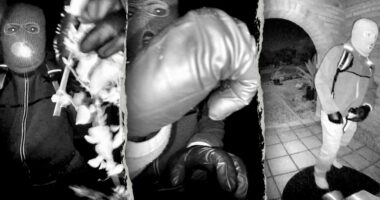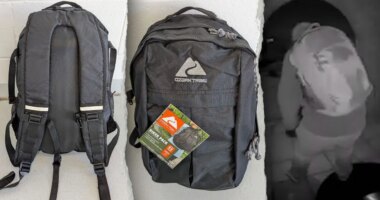Share this @internewscast.com

In Salt Lake City, a Utah judge delivered a sentence on Monday to a man accused of staging his own death to escape the country and evade arrest on rape allegations. Nicholas Rossi, 38, received a prison term ranging from five years to life, reflecting the severity of his offenses.
District Judge Barry Lawrence described Rossi as “a serial abuser of women” and labeled him “the very definition of a flight risk” prior to announcing the sentence. The judgment marks the first of two sentencing hearings following Rossi’s separate convictions for raping two women in northern Utah back in 2008. His second sentencing is slated for November.
In Utah, prison sentences can be issued as a range rather than a fixed duration. This allows a parole board to decide the actual length of time an individual will serve. For the crime of rape, classified as a first-degree felony, Utah law prescribes a potential sentence ranging from five years to life.
During a trial in August, a jury found Rossi guilty of rape after hearing three days of testimony, including accounts from the victim and her parents.
Prior to the sentencing, the victim addressed the court, recounting how Rossi left a “trail of fear, pain, and destruction” in his wake. In line with its policy, the Associated Press refrains from identifying victims of rape.
Rossi left a “trail of fear, pain and destruction” behind him, the victim in the case told the court shortly before Rossi was sentenced. The Associated Press does not typically identify rape victims.
“This is not a plea for vengeance,” she said. “This is a plea for safety and accountability, for recognition of the damage that will never fully heal.”
Rossi posed a risk to community safety and should be in prison, argued Deputy Salt Lake County District Attorney Brandon Simmons, a prosecutor in the case, before the sentencing. Rossi’s lawyers, meanwhile, urged the judge to give him parole.
Rossi did not testify on his own behalf during the trial. Given a chance to speak before being sentenced Monday, he maintained his innocence.
“I am not guilty of this. These women are lying,” Rossi said in a soft, raspy voice. He appeared in court in a wheelchair and used an oxygen tank.
Utah authorities began searching for Rossi, whose legal name is Nicholas Alahverdian, when he was identified in 2018 through a decade-old DNA rape kit. He was among thousands of rape suspects identified and later charged when Utah made a push to clear its rape kit backlog.
Months after he was charged in that case, an online obituary claimed Rossi died on Feb. 29, 2020, of non-Hodgkin lymphoma. But police in his home state of Rhode Island, along with his former lawyer and a former foster family, cast doubt on whether he was dead.
He was arrested in Scotland the following year while receiving treatment for COVID-19. Hospital staff recognized his distinctive tattoos — including the crest of Brown University inked on his shoulder, although he never attended — from an Interpol notice.
He was extradited to Utah in January 2024 after a protracted court battle. At the time, Rossi insisted he was an Irish orphan named Arthur Knight who was being framed. Investigators say they identified at least a dozen aliases Rossi used over the years to evade capture.
In his first trial, Rossi’s public defender denied the rape claim and urged jurors not to read too much into his move overseas. Even so, the jury convicted Rossi of the rape charge for which he was sentenced Monday.
The victim in the case had been living with her parents and recovering from a traumatic brain injury in 2008 when she responded to a personal ad Rossi posted on Craigslist. They began dating and were engaged within a couple weeks.
She testified that Rossi asked her to pay for dates and car repairs, lend him $1,000 so he wouldn’t be evicted, and take on debt to buy their engagement rings. He grew hostile soon after their engagement and raped her in his bedroom one night after she drove him home, she said.
She went to police years later, after hearing that Rossi was accused of raping another woman in Utah around the same time.
The victim in that case went to police soon after Rossi attacked her at his apartment in Orem. The woman had gone there to collect money she said he stole from her to buy a computer.
Rossi was convicted in that case in September and sentencing is set for Nov. 4.
Rossi grew up in foster homes in Rhode Island and returned there before he appeared to fake his death and flee the country. He was previously wanted in the state for failing to register as a sex offender. The FBI says he also faces fraud charges in Ohio, where he was convicted of sex-related charges in 2008.
___
Gruver reported from Ft. Collins, Colorado.
















